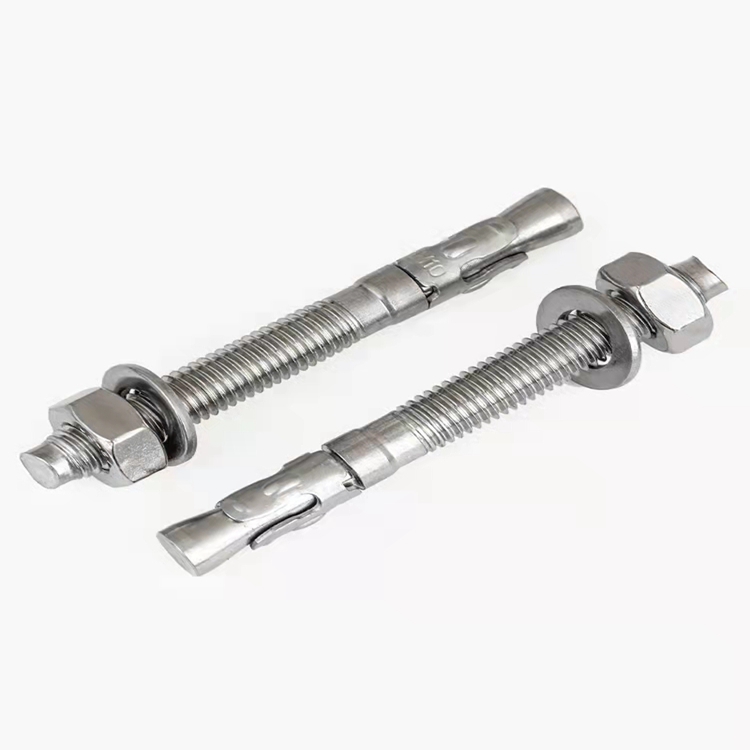hdg bolts
Dec . 03, 2024 18:00 Back to list
hdg bolts
Understanding HDG Bolts An Essential Component in Modern Construction
Hot-Dip Galvanized (HDG) bolts have emerged as a crucial component in the field of construction and engineering. These bolts are characterized by their unique coating process that protects them from corrosion, making them suitable for various applications, particularly in environments subject to moisture and weather elements.
What Are HDG Bolts?
HDG bolts are standard steel fasteners that undergo a hot-dip galvanization process. This involves immersing the steel bolts in molten zinc, which forms a protective layer around them. The primary purpose of this process is to enhance the bolts' durability and lifespan by preventing rust and corrosion. This feature is particularly important in infrastructure projects like bridges, highways, and buildings where structural integrity is paramount.
The Benefits of HDG Bolts
1. Corrosion Resistance The most notable advantage of HDG bolts is their enhanced resistance to corrosion. The zinc coating provides a barrier that prevents moisture from reaching the underlying steel, thereby significantly extending the service life of the bolt.
2. Longevity With proper installation and care, HDG bolts can last for decades. This longevity reduces the need for frequent replacements, which saves time and money in maintenance and repair efforts.
3. Enhanced Strength The hot-dip galvanization process does not compromise the strength of the bolts. In fact, they retain their structural integrity, enabling them to withstand high loads and varying weather conditions.
4. Cost-Effectiveness Although HDG bolts may have a higher initial cost compared to non-coated alternatives, their durability and longevity lead to overall cost savings. Fewer replacements and less maintenance mean lower long-term expenses.
hdg bolts

5. Eco-Friendly Zinc is a naturally occurring element, and the hot-dip galvanization process is environmentally friendly when managed correctly. The use of HDG bolts contributes to sustainable construction practices by reducing the need for frequent replacements and lessening material waste.
Applications of HDG Bolts
HDG bolts are commonly used in several sectors
- Construction In building frameworks, HDG bolts provide essential fastening and structural support. They are ideal for steel structures exposed to harsh environmental conditions. - Infrastructure Bridges and highways often utilize HDG bolts due to their durability, which is essential for safety and longevity.
- Utility Installation HDG bolts are widely used in the installation of electrical towers and other outdoor utilities where resistance to the elements is critical.
- Manufacturing Heavy machinery and equipment often require HDG bolts to ensure that components remain securely fastened under operational stresses.
Conclusion
HDG bolts play a vital role in modern construction and engineering, providing a reliable solution for fastening needs under challenging environmental conditions. Their resistance to corrosion, strength, and cost-effectiveness make them an indispensable choice for engineers and builders alike. As infrastructure continues to evolve and the demand for durable materials grows, the use of HDG bolts will likely become even more prevalent, solidifying their place as a foundational component in the construction industry. Understanding their benefits and applications is essential for anyone involved in building and maintenance, ensuring the safety and longevity of structures for years to come.
Latest news
-
Durable Bolts for Lawn Mower Handle - Top Supplier & Manufacturer
NewsAug.22,2025
-
High-Quality Bolts for Lawn Mower Handle Supplier & Manufacturer
NewsAug.21,2025
-
Reliable Axle Nuts Supplier | High-Quality Automotive Parts
NewsAug.19,2025
-
Premium Wire Bolts Suppliers | Durable & Reliable Fasteners
NewsAug.18,2025
-
Leading Metric Wood Screw Companies & Manufacturers
NewsAug.17,2025
-
Top Wire Bolts Suppliers - Quality & Durable Fasteners
NewsAug.15,2025
